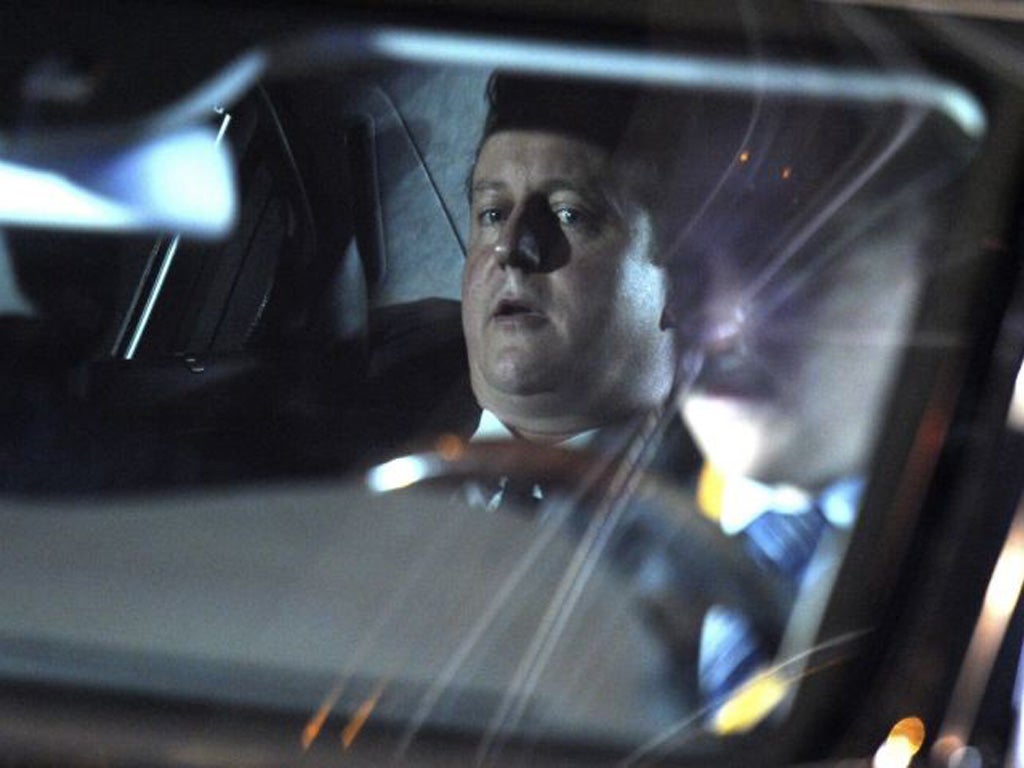Andrew Grice: Cameron's European headache will get worse
Boris Johnson knows calling for a referendum hits his party’s sweet spot and so does it regularly


David Cameron looked drained as he left an acrimonious EU summit at 1.20am yesterday. After 11 hours at the negotiating table, he still didn't know whether a deal to save the euro would be done. Symbolically, the crucial decisions were left to the 17 eurozone countries, who haggled for another three hours before agreeing that EU bailout funds can recapitalise their banks directly.
On a daily basis, power is shifting unmistakably from the 27 EU members to the 17-strong eurozone. On the face of it, the UK has safety in numbers in a group of 10. The problem is that most of the others in the outer circle want to join the inner group, while Britain appears to flirt with leaving even the second tier.
The Prime Minister's European headache is going to get much worse. As the 17 move towards banking, fiscal and political union, their decisions will have a huge impact on Britain.
For Mr Cameron, government wasn't supposed to be like this. The overwhelming need to clear the deficit is bad enough. It has turned upside down his pledge in opposition to "share the proceeds of growth": if only there was any growth to share now. The eurozone crisis may offer some short-term excuses, perhaps deflecting Labour's efforts to blame the double-dip recession on the Coalition's cuts. But Europe's key role in the drama compounds Mr Cameron's woes. It makes the management of his party – already hard enough in a coalition – even more tricky.
The between-the-lines message of this week's letter to Mr Cameron signed by 100 Tory MPs is: pledge a Europe referendum before Labour does in order to get the credit. Promising a post-2015 referendum now sounds easy enough but the PM is not convinced. For a start, it's not at all clear what kind of Europe will emerge from the crisis, which may not be over yet.
The danger is that any Europe referendum would become an "in or out"one. Mr Cameron, who described himself yesterday as a "practical eurosceptic", does not want to be the PM who paves the way for the UK to leave the EU. British business would overwhelmingly oppose leaving a bloc on which 50 per cent of our trade and three million jobs depend.
Mr Cameron is tiptoeing towards a 2015 manifesto pledge for a referendum designed to strengthen Britain's hand in negotiations on a new EU treaty to cement the ever-closer union inside the eurozone. The choice would not be "in or out" but whether Britain had got better membership terms – in Tory minds, whether it had clawed back enough powers from Brussels. "If you offer a referendum now, the choice would be seen as 'out or the status quo.' We don't want either. We want a better deal from Europe," said one Cameron aide.
All very well, but George Osborne has raised great expectations on the Tory benches. "He has been flashing some leg on a referendum," said one senior MP. "It's all about keeping up with Boris [Johnson] in the future leadership stakes." The Mayor of London knows that calling for a referendum hits his party's sweet spot and so does it regularly.
As if the problems in his own party are not enough, Mr Cameron must also try to keep the Liberal Democrats onside. Nick Clegg believes the Tories play with fire by talking up a referendum. Mr Cameron intended to compensate for Britain's absence from the single currency by building strong personal relationships with other EU leaders. But his Europe policy has not recovered from a disastrous start, according to EU diplomats.
Pulling Tory MEPs out of the mainstream centre-right European People's Party (EPP) boosted Mr Cameron's prospects in the 2005 Tory leadership contest but now excludes him from the pre-EU summit caucus attended by 16 of the 27 leaders, by far the most influential group. German sources told me that Mrs Merkel still doesn't understand Mr Cameron's self-exile. She regards him as a fellow liberal Conservative and natural ally.
There is no prospect of a reconciliation: indeed, the Tories and the EPP are now heading off in very different directions. The Tories' dislike of all things European gets stronger by the day, and their pressure for a referendum grows. The supreme irony is that the European dog Mr Cameron hoped would not bark at all may end up defining his premiership.
Join our commenting forum
Join thought-provoking conversations, follow other Independent readers and see their replies
Comments